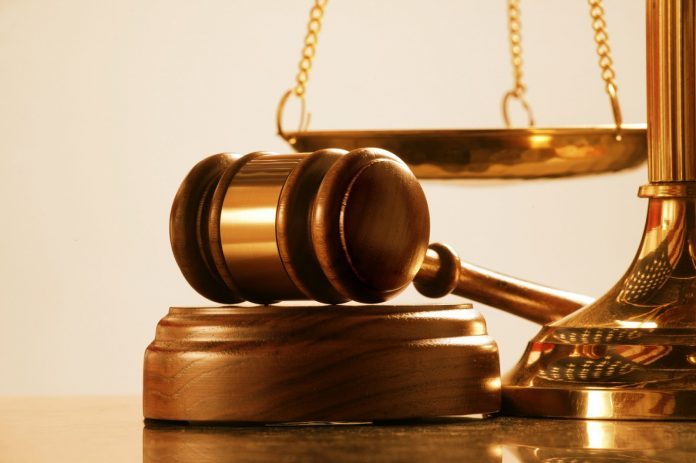The receivers of the seven failed banks have started legal proceedings against 50 directors and shareholders for their roles in the collapse of the banks.
The banks are uniBank Ghana Ltd, the UT Bank, the Capital Bank, the Royal Bank, the Construction Bank, the Beige Bank and the Heritage Bank.
A Special Investigative Team (SIT) set up to probe financial crimes in the country has also referred many dockets on some members of staff of the defunct banks to the Attorney-General’s Office for advice and possible prosecution.
ALSO: Govt to meet Shatta, Stonebwoy over feud – Tourism Minister
The receivers, Messrs Nii Amanor Dodoo of KPMG, Vish Ashiagbor and Eric Nana Nipah, both of PricewaterhouseCoopers (PwC), are also pursuing 31,000 customers of the failed banks to recover more than GH¢10 billion in loans and advances.
Defaulters
Daily Graphic checks indicate that the defunct uniBank had the highest number of defaulting customers, numbering 26,558, with a total debt of GH¢4.6 billion, while the Sovereign Bank had 298 customers owing GH¢136 million.
For the Royal Bank, 752 customers are being pursued to pay GH¢1.142 billion, while 14 customers of the Construction Bank are to pay GH¢625,000.
For the Beige Bank, 3,371 customers are to refund GH¢872 million.
ALSO: Two in police grips for robbery
The figures for the loans and advances are gross and do not include the stipulated interests.
Sources close to the receivers said for one of the failed banks, more than GH¢3.8 billion did not pass through the loan books but was captured through a special audit because it was distributed among the directors.
Special Investigative Team
A highly placed source with the SIT also told the Daily Graphic that a reasonable number of documents had been forwarded to the Attorney-General’s Department for advice and possible prosecution.
It explained that a lot of work had gone into the investigations, as all those suspected to have played diverse roles had to respond to individual queries raised by the receivers against them.
It explained that it was as a result of those issues that many people thought that nothing was being done, adding that “prosecutions will start soon, as reasonable cases have been established against those individuals”.
It said the team was awaiting the appropriate charges to be preferred against them by the Attorney-General, with other related legal advice.
Frustrations of BoG Governor
Speaking at the Ghana CEO Summit in Accra, the Governor of the Bank of Ghana (BoG), Dr Ernest Addison, had expressed worry at the slow pace of the loan recovery process, saying that some of the failed banks had insufficient or non-existent information covering some of the loans.
“The process has progressed slowly, as, out of the total loans of GH¢10.1 billion taken over by the receivers, recoveries so far are in excess of GH¢731 million, and this has been achieved through loan repayments by customers, repayment of placements, sale of vehicles, liquidation of bonds and other income sources. Loan repayments by customers constitute about 72 per cent of the total proceeds realised,” the Governor said.
“Low or poor documentation has also made it difficult for the receivers to identify and pursue some of the loan defaulters due to insufficient or non-existent information,” he noted.
ALSO: More details emerge about bribe-grabbing Policeman
Sabotaging the process
He was also worried that some of the loan defaulters and shareholders of the defunct banks were engaging in frivolous legal cases to sabotage the process.
“But even more troubling for the receivers was the fact that some of the assets were not registered in the names of the specific financial institutions but in the names of related or connected parties, making it difficult to dispose of the underlying collateral to offset the outstanding loans.
“Some of these loans were even fictitiously created and the directors are being pursued to recover such money,” Dr Addison noted.
Special courts
He proposed the establishment of a special court to expeditiously deal with the cases, in order to bring finality to the reform process.
“In my opinion, designating special courts and judges to adjudicate matters relating to specific issues arising out of the bank resolutions and revocation of licences, given the public interest and the enforcement of collateral agreements, will help speed up the process.
“Without an efficient judicial system that is prepared to deal with cases in a swift and decisive manner, all the work done in sanitising the banking system will not yield the desired results and expected outcomes,” Dr Addison stated.
Background
The first two banks affected by the reforms were UT and Capital, which were put under the receivership of Mr Ashiagbor, Senior Country Partner, PwC, and Mr Eric Nana Nipah, also of PwC.
The other seven banks — Sovereign, uniBank, Construction, Royal, Heritage, Premium Bank and Beige — were placed under the receivership of Nii Dodoo of KPMG.
Source: Daily Graphic

